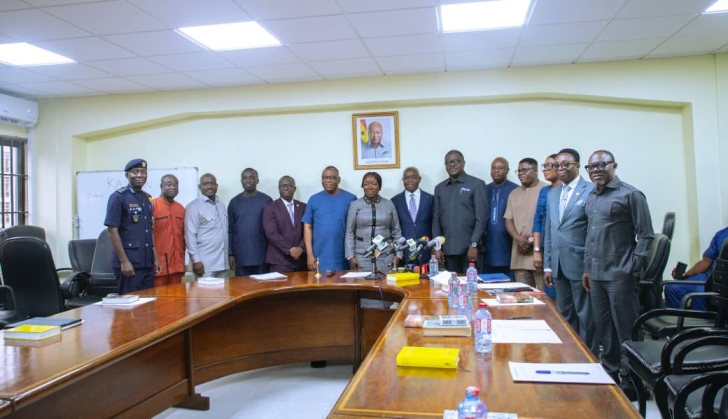The Minister for Trade, Agribusiness and Industry, Elizabeth Ofosu-Adjare, on Wednesday, July 9, 2025, inaugurated a new board of directors for the Ghana Export-Import Bank (Exim Bank), with a charge to drive the country’s industrialisation and export-oriented agenda.
This came as part of a broader exercise to reconstitute key boards under the Ministry, including the Ghana Investment Promotion Centre (GIPC), which was inaugurated earlier the same day.
The newly sworn-in Exim Bank board will be chaired by Dr. Joseph Nyarkotei Dorh, who pledged the board’s full commitment to the Bank’s mandate and President Mahama’s vision of building a resilient, export-led 24-hour economy.
Other members of the Ghana Exim Bank board include:
- Samuel Danquah Arkhurt
- Sampson Ahi (MP), Deputy Minister for Trade, Agribusiness and Industry
- Matilda Asante-Aseidu
- Francis Kojo Kwarteng Arthur
- Stephen Abbas Miezan
- Adamu Robert Akati
- Millicent Samira Lardi Glawu
- Sylvester Adinam Mensah
In his inaugural remarks, Dr. Dorh expressed appreciation to the Minister for the opportunity to serve and promised the board’s strategic alignment with national priorities.
“We shall avoid the temptation of spreading thin to make the necessary impact and become more relevant in the broader objectives of Ghana Exim Bank,” he stated.
He outlined five strategic focus areas the board would pursue:
- Strengthening the agriculture and agribusiness value chain,
- Boosting food production to ensure national security,
- Promoting import substitution and export diversification,
- Accelerating growth in garment and apparel exports,
- And increasing support for rice and poultry production.
“Hon. Minister, count on us to deliver on the objectives of the Bank,” Dr. Dorh assured.
The Ghana Export-Import Bank plays a key role in Ghana’s economic transformation by facilitating financing for the production and export of Ghanaian goods and services. The reconstituted board is expected to intensify efforts to promote local industries and reduce the country’s dependence on imports through targeted investments and support for key sectors.
